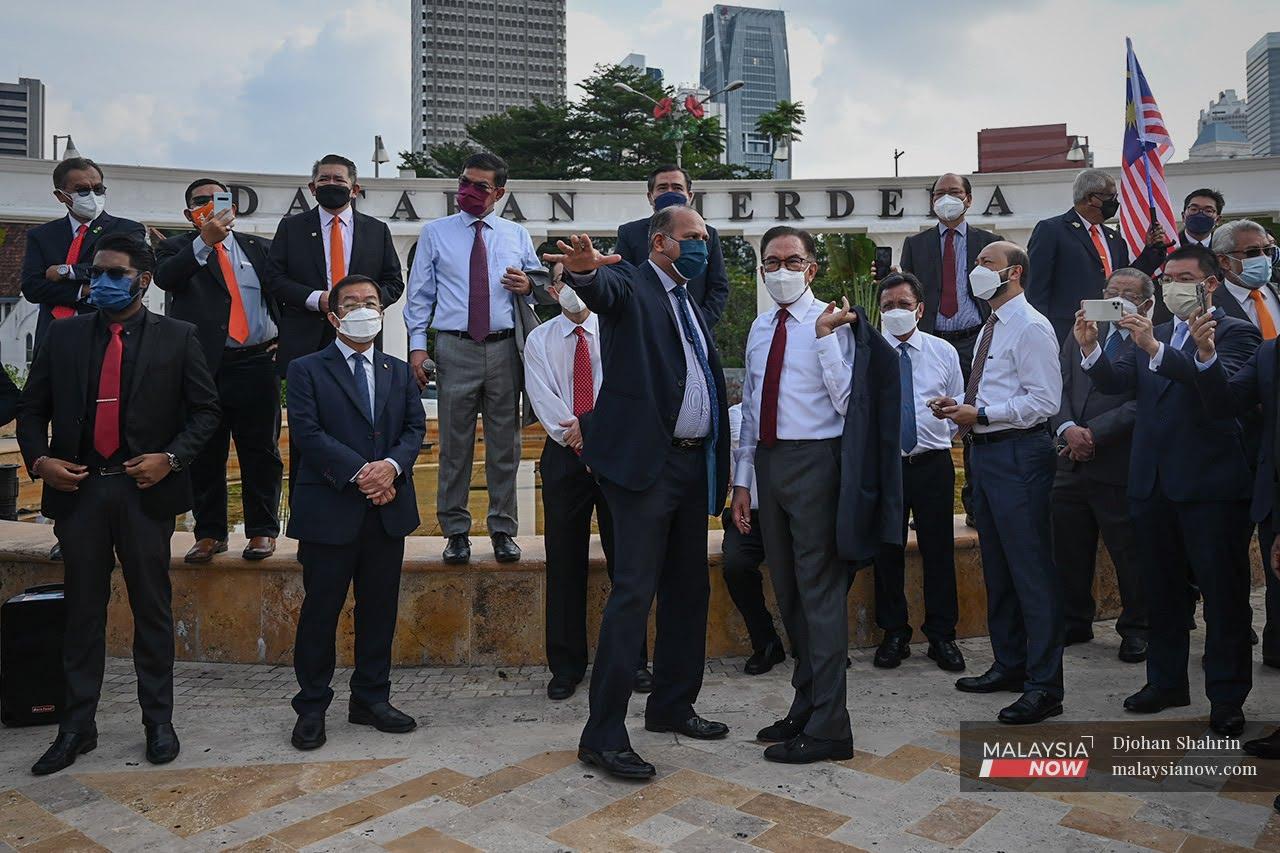Try something new, PH told after failure to oust PN
Analysts say one of the main challenges for the opposition bloc is its lack of successive leaders to replace the current line-up.
Analysts say Pakatan Harapan (PH) should conduct a major overhaul of its leadership following Anwar Ibrahim’s failure to obtain the support of the majority after the resignation of Muhyiddin Yassin from the country’s top office.
They also said the PH leadership could be held responsible for Umno’s return to power through the appointment of its vice-president Ismail Sabri Yaakob as Muhyiddin’s replacement.
Hisommudin Bakar, executive director of Ilham Centre, said Anwar’s leadership as opposition chief appeared shaky after his initial claim of possessing “strong and formidable” numbers turned out to be rhetoric.
“When he was given a chance like this, publicly, it became clear that the numbers were not in his favour,” Hisommudin, who has long followed the developments in PH politics, told MalaysiaNow.
“Now it is up to his colleagues in the opposition bloc to determine if he still has what it takes to be fielded again as their candidate for prime minister after having failed multiple times.”
PH had mobilised its strength to topple the Perikatan Nasional (PN) government, to the point of its MPs overstepping Covid-19 SOPs against large gatherings in order to hold a protest at Dataran Merdeka after being barred from entering the Parliament building due to the detection of several infections in the vicinity.
On July 29, Anwar submitted a motion of no confidence in Muhyiddin as part of efforts to oust the PN government, which however failed to unseat the Pagoh MP.
Muhyiddin only resigned after a group of 15 Umno MPs led by their president Ahmad Zahid Hamidi and former prime minister Najib Razak withdrew their support for him, causing him to lose his majority.
Muhyiddin also failed in his bid to offer a cross-party consensus involving critical reforms in exchange for the opposition’s support at a confidence vote slated to be held in September.
Hisommudin said Anwar had no choice but to issue a statement focusing on the next general election although the question remained whether the Port Dickson MP would still put himself forward as the prime ministerial candidate.
Nevertheless, he said, even if PH decides to change tack and use someone else as its poster boy, problems would still arise as the coalition had not built up other strong leaders.
“When it comes to taking over the government, it’s clear that they are very much tied to the ‘Anwar factor’,” he said.
“Choosing someone else as their icon doesn’t have that same image of strength and confidence.”
Following this particular failure, he said, the PH Plus coalition – a reference to PH’s cooperation with other opposition parties like Warisan and Pejuang – should begin building a new line-up of leaders who are able to replace the current generation.
Oh Ei Sun, a senior fellow at the Singapore Institute of International Affairs, agreed that the PKR president should be given a respite.
“It would be better to try a new strategy that could be accepted than to continue with old ones that have already failed.”
Speaking to MalaysiaNow, he said the time had come for Anwar to take on a senior advisory position within the PH coalition.
“I don’t see a single person who can match Anwar’s reputation, but you could have some of the younger senior leaders from the various component parties taking a collective lead,” he said.
“From his party, PKR, his daughter Nurul Izzah; Fahmi Fadzil and Rafizi, and from DAP you could have Loke Siew Fook.”
He said replacing Anwar with new faces could give a refreshing feel to the coalition.
“People are desperate, they may give this younger coalition a try.”
Hisomuddin meanwhile said any new line-up should be given the space to explore and to offer to lead the opposition in the run-up to the 15th general election.
“If Anwar continues to refuse, the people will already know what the outcome will be, post-election,” he said.
Anwar attempted to oust Muhyiddin in September last year, claiming to posses a “strong and formidable” majority in the Dewan Rakyat. However, he failed to show proof of this during an audience with the Yang di-Pertuan Agong.
Soon after, MalaysiaNow revealed details of a letter by Zahid and Najib expressing support for Anwar to topple Muhyiddin.
Political experiment
Hisomuddin said PH would need the courage to take on a political experiment if it wished to return to power.
“It would be better to try a new strategy that could be accepted than to continue with old ones that have already failed,” he said.
Sarawak analyst Jeniri Amir said it would be difficult for PH to replace old faces if a general election is held in the near future.
“If after GE15 Anwar has still failed, then I think the time would have come for him to step aside and to give space to new leaders as he has failed time and time again.
“If he fails again at GE15, he will need to seriously consider giving way to others,” he told MalaysiaNow.
He said PKR, in particular, lacked successive leaders as many had left the party following internal conflict.
“The turmoil in PKR these past few years has weakened the party,” he said. “Leaders who were seen as having potential made the drastic decision to quit.”
“Unfortunately, despite his best efforts, conflict within the opposition bloc has driven him to desperation in his quest to become prime minister.”
Subscribe to our newsletter
To be updated with all the latest news and analyses daily.
